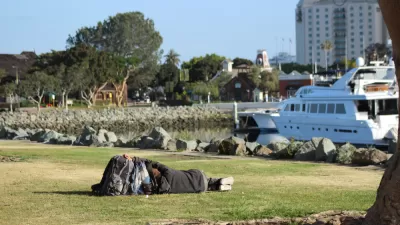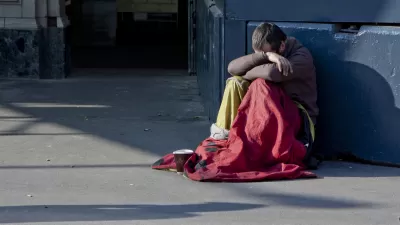As cities around the U.S. scramble to figure out how to address the housing affordability crisis, one of them has now leaned on the benevolence of what some consider the least benevolent of them all.
As cities around the U.S. scramble to figure out how to address the housing affordability crisis, one of them has now leaned on the benevolence of what some consider the least benevolent of them all.
Amazon, the world’s largest online retailer, declared Seattle (specifically its South Lake Union district) its new home several years ago, and began moving employees in last year. The corporation’s planned campus, to consist of three towers and at least 20 other office buildings, will bring more than 20,000 jobs to Seattle. Amazon’s presence has already propelled smaller tech startups (and big tech company, Google) to set up shop, and the buying and building frenzy that continues to ensue caused the mayor to declare a “housing state of emergency” last year in what is now the country's 4th-fastest growing city.
Amazon's move to this once-desolate neighborhood in Seattle has been the catalyst for the largest number of residential permit applications since 1984, according to The New York Times, and its masses of employees have attracted food trucks and other small business activity in and around the district.
Ironically, Seattle’s attractiveness to the tech sector is in part due to the fact that housing in the Bay Area—the nation’s largest tech hub—has become too pricey, and more and more people in the field are fleeing to what they consider more affordable housing in Seattle.
The relativity of “affordable” comes into play, as the city was not overflowing with housing to begin with, and now the influx of people with deeper pockets has caused many low- to moderate-income city residents to feel the pressure of rising rents, and the city to face a surging homeless population. A January 2016 homeless count in Seattle and Kings counties reported 4,505 individuals living unsheltered, including about 400 families.
FULL STORY: Did Amazon Really Just Create a Pop-up Homeless Shelter?

Alabama: Trump Terminates Settlements for Black Communities Harmed By Raw Sewage
Trump deemed the landmark civil rights agreement “illegal DEI and environmental justice policy.”

Study: Maui’s Plan to Convert Vacation Rentals to Long-Term Housing Could Cause Nearly $1 Billion Economic Loss
The plan would reduce visitor accommodation by 25% resulting in 1,900 jobs lost.

Planetizen Federal Action Tracker
A weekly monitor of how Trump’s orders and actions are impacting planners and planning in America.

Wind Energy on the Rise Despite Federal Policy Reversal
The Trump administration is revoking federal support for renewable energy, but demand for new projects continues unabated.

Passengers Flock to Caltrain After Electrification
The new electric trains are running faster and more reliably, leading to strong ridership growth on the Bay Area rail system.

Texas Churches Rally Behind ‘Yes in God’s Back Yard’ Legislation
Religious leaders want the state to reduce zoning regulations to streamline leasing church-owned land to housing developers.
Urban Design for Planners 1: Software Tools
This six-course series explores essential urban design concepts using open source software and equips planners with the tools they need to participate fully in the urban design process.
Planning for Universal Design
Learn the tools for implementing Universal Design in planning regulations.
Caltrans
Smith Gee Studio
Institute for Housing and Urban Development Studies (IHS)
City of Grandview
Harvard GSD Executive Education
Toledo-Lucas County Plan Commissions
Salt Lake City
NYU Wagner Graduate School of Public Service





























